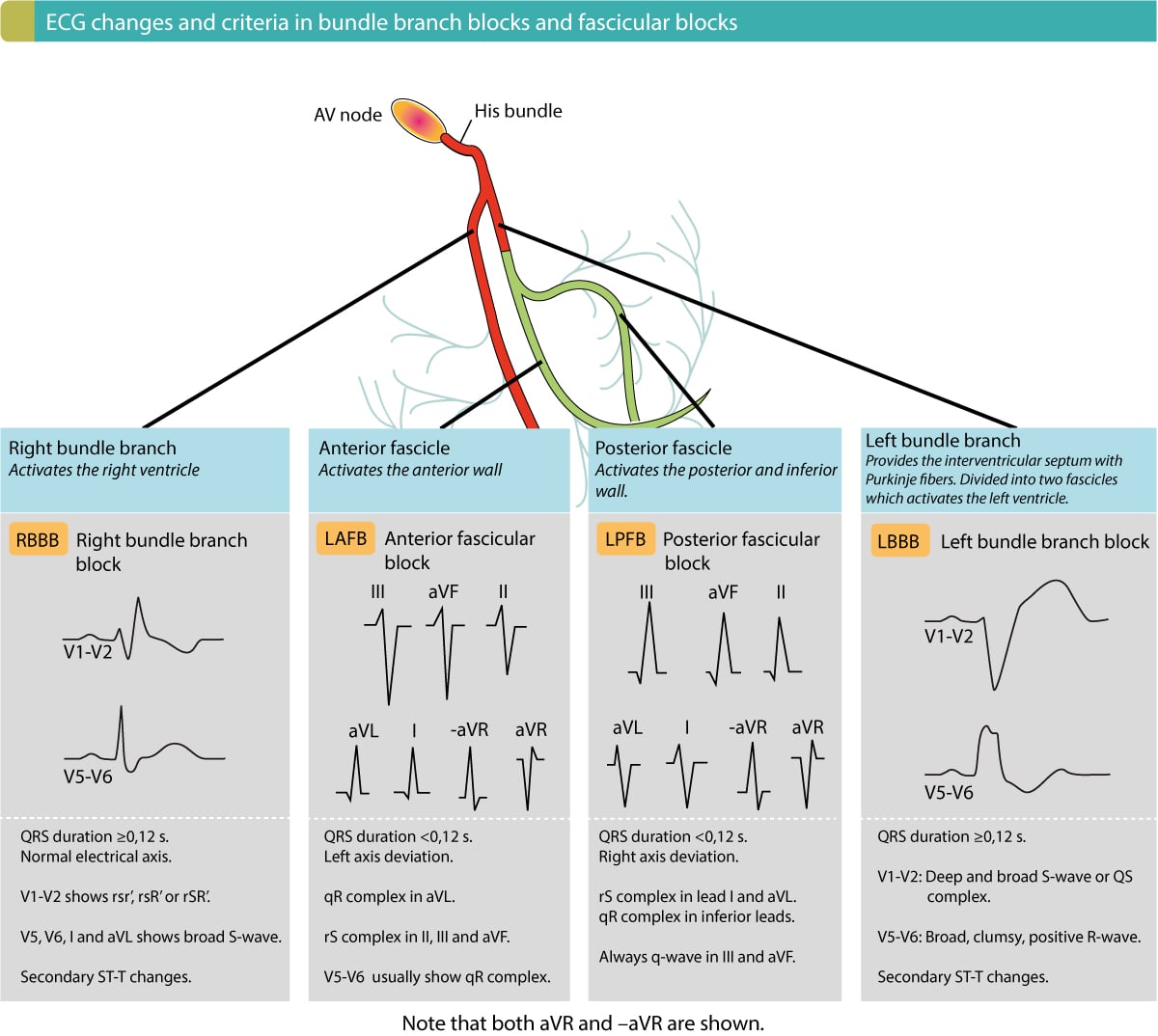So, you’ve probably heard the term "borderline ECG" floating around in medical discussions or maybe even seen it pop up in your own health records. If you're scratching your head trying to figure out what it means, don’t worry—you’re not alone. A borderline ECG isn’t exactly something people talk about at dinner parties, but it’s an important topic when it comes to heart health. Let’s dive right into it and break it down for you.
This article is here to demystify borderline ECGs and help you understand what they mean for your health. Whether you’re worried about a recent test result or just curious about how this works, we’ve got you covered. We’re going to make sure you leave this page feeling informed, empowered, and ready to take charge of your heart health.
But before we dive deep into the nitty-gritty, let’s set the stage. A borderline ECG isn’t something to panic about, but it’s definitely something worth paying attention to. It’s like a little warning sign your body gives you, saying, “Hey, maybe we should look into this a bit more.” And trust us, it’s always better to be proactive when it comes to your health.
Read also:1985 Chinese Year Animal Discover Your Zodiac Sign And Its Hidden Meanings
What Exactly is a Borderline ECG?
A borderline ECG refers to an electrocardiogram result that doesn’t fall perfectly within the normal range, but also isn’t severe enough to be classified as abnormal. Think of it as being in the gray area—kind of like when you’re running late to a meeting but not late enough to be considered tardy. It’s tricky, but it’s something doctors take seriously.
Now, let’s break it down a bit more. An ECG, or electrocardiogram, is a test that measures the electrical activity of your heart. It’s a quick, painless way to check how your heart is functioning. When the results come back as borderline, it means there are some irregularities, but they’re not severe enough to indicate a major problem—yet.
Why Should You Care About Borderline ECG Results?
Here’s the deal: a borderline ECG can be a sign that something might be going on with your heart. It’s like your body’s way of saying, “Hey, maybe we should keep an eye on this.” Ignoring it isn’t the best idea, because early detection and management can make a huge difference in preventing more serious heart issues down the line.
Some common reasons for a borderline ECG include minor electrical irregularities, slight changes in heart rhythm, or even factors like stress or anxiety. But here’s the kicker—sometimes, it could be an early sign of something more serious, like coronary artery disease or arrhythmia. So yeah, it’s worth paying attention to.
How Does an ECG Work?
An ECG works by detecting and recording the electrical signals your heart produces with each beat. These signals are then translated into a graph that doctors can analyze. It’s like a snapshot of your heart’s activity, giving healthcare professionals a clear picture of how it’s functioning.
During the test, small electrodes are placed on your chest, arms, and legs. These electrodes pick up the electrical signals from your heart and send them to a machine that records the data. The whole process usually takes just a few minutes, and it’s completely painless. You might feel a little weird lying there with wires attached to you, but trust us, it’s no big deal.
Read also:Ken Waghorn The Unsung Legend Of Formula 1 Engineering
What Do the Results Mean?
When your ECG results come back as borderline, it means there are some slight abnormalities in the electrical activity of your heart. But before you start panicking, remember that these irregularities aren’t always a cause for concern. Sometimes, they’re just temporary glitches that can be influenced by factors like stress, caffeine, or even your posture during the test.
However, if the borderline results persist or are accompanied by symptoms like chest pain, shortness of breath, or dizziness, it’s definitely worth discussing with your doctor. They might recommend further testing, like a stress test or Holter monitor, to get a clearer picture of what’s going on.
Common Causes of Borderline ECG
There are several reasons why someone might end up with a borderline ECG result. Some of these causes are pretty harmless, while others might require a bit more attention. Let’s take a look at some of the most common ones:
- Stress and Anxiety: Yep, you guessed it. Stress can mess with your heart’s electrical activity, leading to borderline ECG results.
- Caffeine and Stimulants: That extra cup of coffee or energy drink might be giving your heart a little extra zap, causing some irregularities on the ECG.
- Electrolyte Imbalance: Low potassium or magnesium levels can affect your heart’s rhythm, leading to borderline ECG findings.
- Structural Heart Changes: Sometimes, changes in the structure of your heart, like thickening of the ventricles, can cause borderline ECG results.
When Should You Worry?
While a borderline ECG isn’t necessarily cause for alarm, there are certain situations where you should definitely take it seriously. If you’re experiencing symptoms like chest pain, palpitations, or shortness of breath, it’s time to have a chat with your doctor. They might want to do some additional testing to rule out any underlying conditions.
It’s also worth noting that if you have a family history of heart disease or other risk factors, a borderline ECG might be something to keep a closer eye on. Knowledge is power, and understanding your risk factors can help you make informed decisions about your health.
How is a Borderline ECG Diagnosed?
Diagnosing a borderline ECG usually starts with a standard ECG test. If the results come back as borderline, your doctor might recommend further testing to get a clearer picture. Some common follow-up tests include:
- Stress Test: This involves exercising on a treadmill or stationary bike while your heart activity is monitored.
- Holter Monitor: A portable device that records your heart’s activity over a 24-48 hour period.
- Echocardiogram: An ultrasound of your heart that provides detailed images of its structure and function.
These tests can help your doctor determine whether the borderline ECG is something to be concerned about or if it’s just a minor irregularity that doesn’t require further action.
What Should You Expect During the Test?
During an ECG test, you’ll be asked to lie down on an exam table while small electrodes are attached to your chest, arms, and legs. The electrodes are connected to a machine that records your heart’s electrical activity. It’s a quick, painless process that usually takes just a few minutes.
For follow-up tests like a stress test or Holter monitor, the process might be a bit more involved, but it’s still relatively simple. The goal is to get as much information as possible about your heart’s function so your doctor can make an informed diagnosis.
Managing a Borderline ECG
If you’ve been diagnosed with a borderline ECG, don’t panic. There are plenty of things you can do to manage it and reduce your risk of developing more serious heart issues. Here are a few tips:
- Stay Active: Regular exercise is one of the best things you can do for your heart health. Just make sure to talk to your doctor before starting any new exercise program.
- Eat a Heart-Healthy Diet: Focus on foods that are low in saturated fat, cholesterol, and sodium. Load up on fruits, vegetables, whole grains, and lean proteins.
- Manage Stress: Stress can wreak havoc on your heart, so finding ways to manage it—like meditation, yoga, or deep breathing exercises—can be incredibly beneficial.
When Should You Follow Up?
Regular follow-up appointments with your doctor are crucial if you’ve been diagnosed with a borderline ECG. They’ll want to monitor your condition and make sure there haven’t been any significant changes. Depending on your specific situation, they might recommend follow-up ECGs, stress tests, or other diagnostic tests.
It’s also a good idea to keep track of any symptoms you’re experiencing and report them to your doctor. This can help them make more informed decisions about your care and ensure that any potential issues are caught early.
Can a Borderline ECG Be Prevented?
While you can’t always prevent a borderline ECG, there are definitely steps you can take to reduce your risk. Maintaining a healthy lifestyle is key, and that includes eating a balanced diet, exercising regularly, and avoiding smoking and excessive alcohol consumption.
It’s also important to manage any underlying health conditions you might have, like high blood pressure or diabetes. Keeping these conditions under control can help reduce your risk of developing heart-related issues, including borderline ECG findings.
What About Lifestyle Changes?
Making positive lifestyle changes can have a big impact on your heart health. Whether it’s cutting back on caffeine, finding ways to manage stress, or incorporating more physical activity into your daily routine, every little bit helps. And hey, who doesn’t love feeling healthier and more energized?
What Do the Experts Say?
According to cardiologists and heart health experts, a borderline ECG isn’t something to ignore, but it’s also not necessarily cause for panic. It’s a sign that something might be going on with your heart, and it’s worth paying attention to. Regular monitoring and follow-up testing can help ensure that any potential issues are caught early and managed effectively.
Experts also emphasize the importance of maintaining a healthy lifestyle to reduce the risk of developing more serious heart conditions. Eating a balanced diet, staying active, and managing stress are all key components of heart health.
Where Can You Find Reliable Information?
If you’re looking for more information about borderline ECGs and heart health, there are plenty of reliable sources out there. The American Heart Association, Mayo Clinic, and National Institutes of Health all offer comprehensive resources on heart health and ECG testing.
It’s always a good idea to consult with your doctor if you have any questions or concerns about your heart health. They can provide personalized advice and guidance based on your specific situation.
Conclusion
So there you have it—a comprehensive guide to understanding borderline ECGs and what they mean for your heart health. Remember, a borderline ECG isn’t something to panic about, but it’s definitely worth paying attention to. By staying informed, making positive lifestyle changes, and working closely with your healthcare provider, you can take control of your heart health and reduce your risk of developing more serious issues down the line.
And hey, don’t forget to share this article with your friends and family. Knowledge is power, and the more people understand about heart health, the better equipped they’ll be to take care of themselves. So go ahead, hit that share button and spread the word!
Table of Contents


